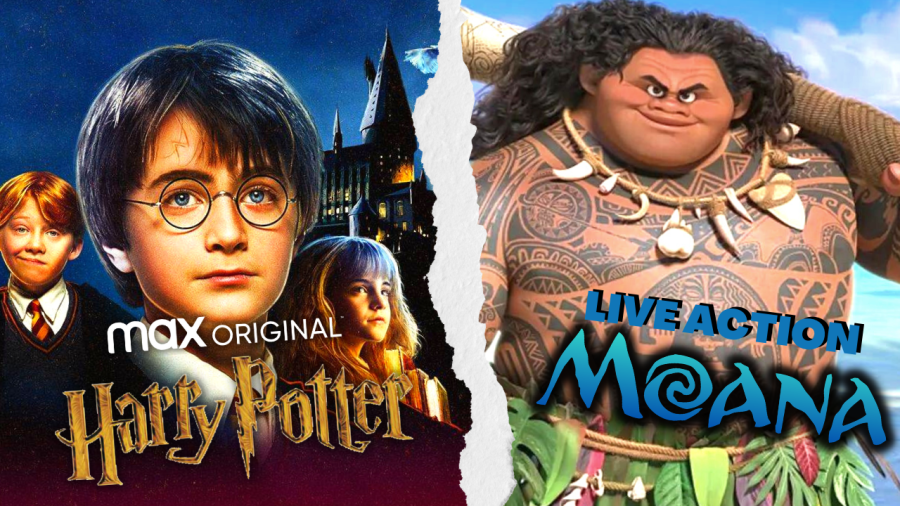Cinema scope: relapsing into reboots and remakes
A rebooted “Harry Potter” TV show, a continuation of the “Ghostbusters” franchise, and new “Lord of the Rings” films.
In the last year alone, studios from across Hollywood have revealed numerous remakes and reimaginings of existing intellectual properties. Most egregious is a remake of the animated film “Moana,” which was originally released in 2016 — only 7 years ago.
This Hollywood trend reflects studio initiatives to revive films based on existing intellectual property, regardless of whether there has already been a definitive and satisfactory ending to a franchise. Due to the uncertainty of a movie’s financial success, most big-budget films have to appeal to an existing fanbase or popularity to turn a profit.
With the fall in theater attendance during the COVID-19 pandemic, major studios have relied heavily upon these more surefire moneymakers.
Coinciding with the reboot frenzy, original movies with larger budgets have become rare. Because they often have no existing recognition from the audience or a preexisting fanbase, original films often flop at the box office regardless of their quality. Director George Miller’s film “Three Thousand Years of Longing,” which grossed just $20 million against a $60 million budget excluding marketing, flopped despite decent critical reception. However, a film such as 2019’s “Lion King,” which received poor reviews, is almost guaranteed to gross over $500 million.
Because studios are reluctant to finance high-budget original projects, audiences have become inundated with constant franchise films, remakes, and reboots. As a result, creative talent in the film industry is stunted as many prolific and high-profile directors refuse to work in the micromanaged framework of franchise films. This leads to less choices for cinemagoers and exposure to original cinema.
Though directors such as Martin Scorcese are able to obtain funding for cheaper projects while maintaining creative autonomy, if an auteur wants their passion project to have a higher budget, they typically need to yield final control to the studio. For example, Francis Ford Coppola, the director of classics such as “The Godfather” and “Apocalypse Now,” was forced to fund his passion project “Megalopolis” with $120 million of his own money.
Though some fans might be happy to see their favorite franchises continue, this often comes at the detriment of a previously concluded narrative. During an investors’ meeting, Disney announced that they would be producing “Toy Story 5” as a means of recouping lost revenue. This confused many fans as they believed that the previous installment tied up all loose ends.
Additionally, films mandated by studios are often mired with unoriginal tropes, poorly-written dialogue, and clunky storytelling, a byproduct of executive interference and decisions made by committee.
Films are a conduit for diverse artistic expression, and this has been stunted by studio overreliance on brand recognition over interesting and original ideas. As films being produced continue to stay away from director-led visions, creative intent is detracted from the art form, and audiences are instead fed a stale product.
Overall, the release of remakes and reboots is a desperate move by movie studios struggling to balance creative integrity with secure profits. However, as fatigue for blockbusters sets in, audiences may turn more towards films with high budgets and a clear artistic vision.

Brandon is the senior executive copy editor for Tiger Times. He enjoys playing basketball, watching good TV shows and movies, and listening to music. He...

